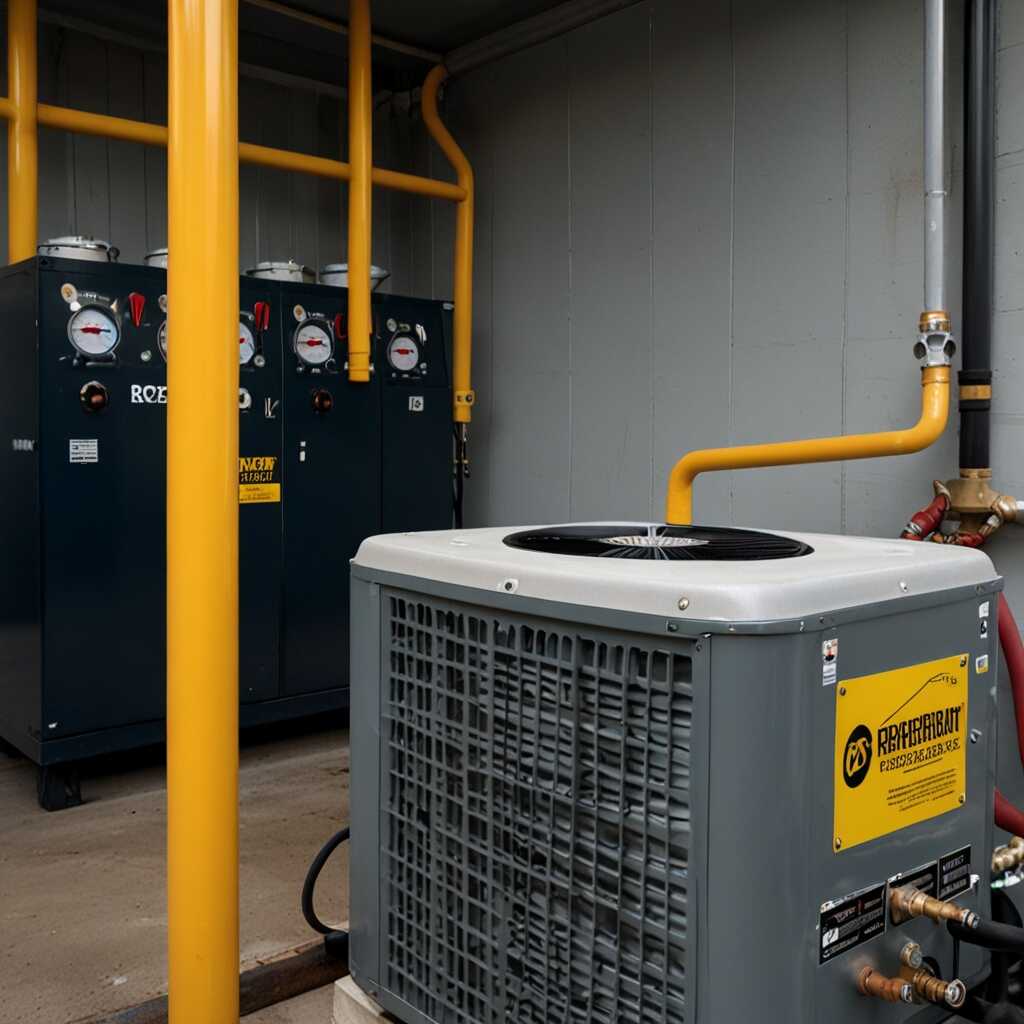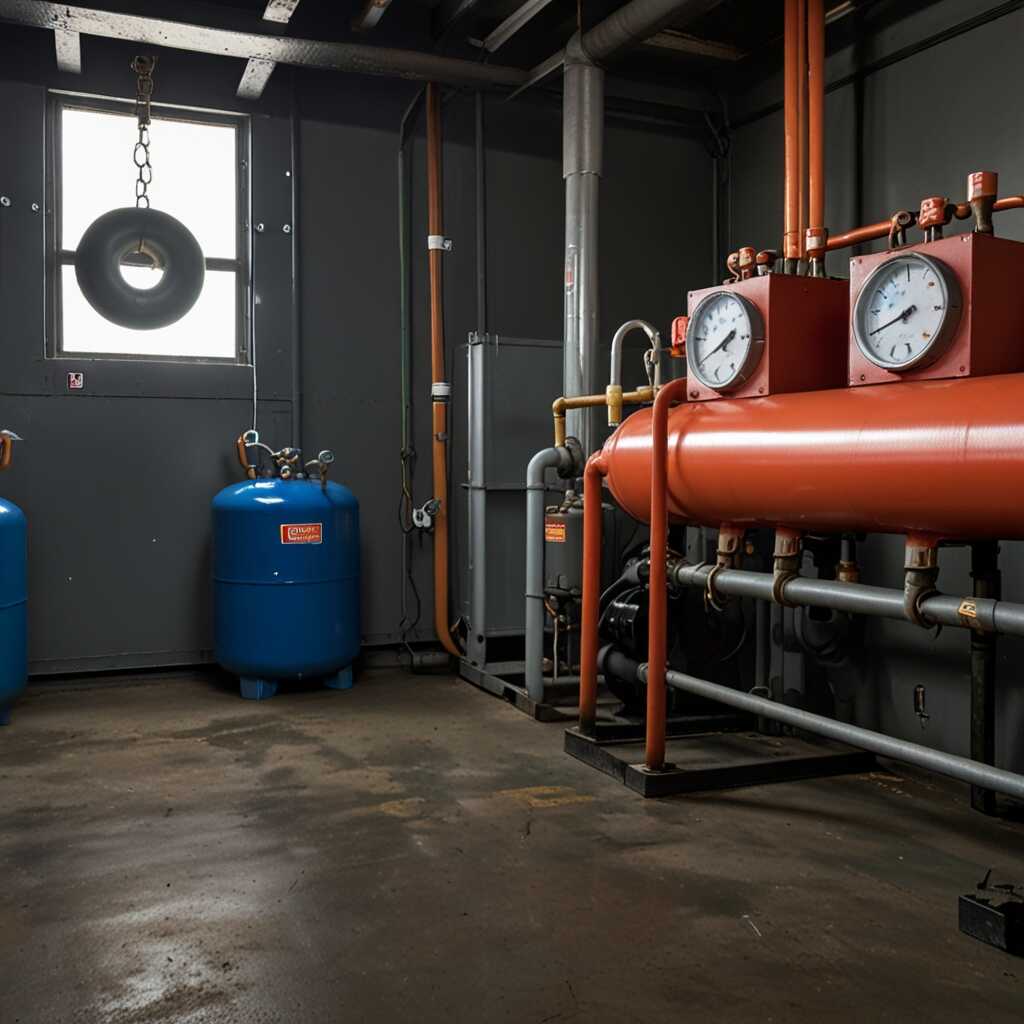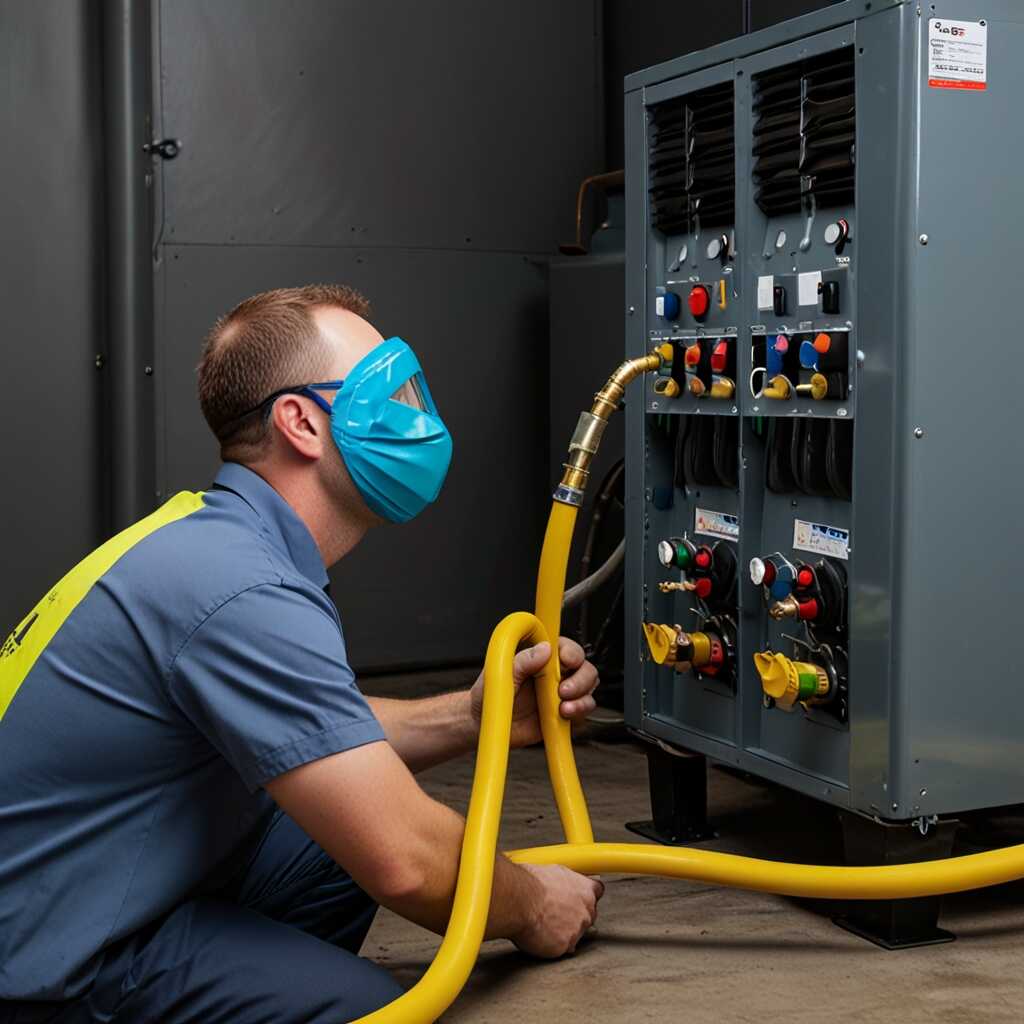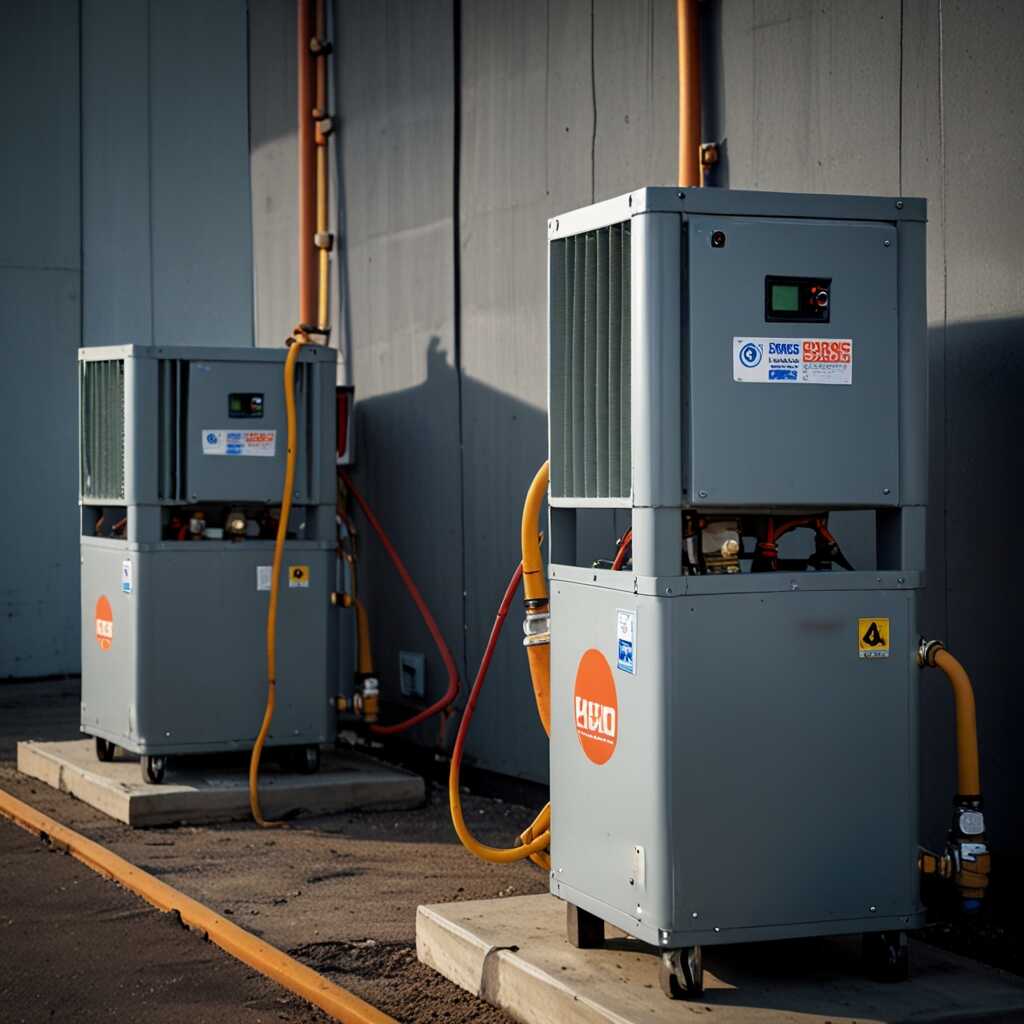Cast iron refrigerant recovery compressors provide a longer operational lifespan than their aluminum counterparts. Their robust construction and superior heat dissipation capabilities enhance reliability and efficiency. HVAC professionals and refrigerant recovery technicians benefit from these advantages, reducing the frequency of equipment failures and costly repairs. At Refrigerant Recovery Pro, we offer expert insights into how these compressors can improve your refrigerant recovery practices and overall system durability.
Key Advantages of Cast Iron in Compressor Manufacturing
Cast iron compressors offer several key benefits. Their strength and durability make them ideal for rigorous compressor applications. The material handles high pressures and temperatures with ease. Cast iron’s thermal stability prevents deformation, ensuring that compressors perform consistently over time. Compared to alternatives like aluminum, cast iron provides superior reliability. HVAC professionals find that the operational lifespan of cast iron compressors often exceeds those made from lighter materials. This increased longevity means fewer replacements and maintenance efforts, proving the value of choosing cast iron for refrigerant recovery systems.
Comparison of Cast Iron and Aluminum in Compressor Production
The choice between cast iron and aluminum in compressor production impacts performance and longevity significantly. Cast iron compressors are sturdier than aluminum ones, which often leads to increased efficiency under higher stress. Aluminum can bend or warp under extreme conditions, whereas cast iron maintains its shape, providing reliable performance. According to recent tests, cast iron compressors can last up to 50% longer than aluminum models. This durability translates to fewer service interruptions and better operational reliability. HVAC technicians appreciate this quality, as it ensures consistent performance across varied refrigerant recovery tasks.
Comparative Analysis of Cast Iron and Alternatives in Compressors
Cast iron compressors offer superior reliability in performance metrics when compared to aluminum and plastic alternatives. They excel in durability and operational efficiency, making them highly suitable for refrigerant recovery. Testing has demonstrated that cast iron can withstand harsher environmental factors, such as temperature fluctuations and humidity, without compromising performance. For example, unlike aluminum, which may corrode, cast iron maintains its structural integrity, enhancing its lifecycle costs. Research indicates that cast iron compressors have an average lifespan of 15-20 years, whereas aluminum may last only 10-15 years. This analysis showcases why cast iron stands out in the compressor market.
Understanding the Importance of Durability in Compressor Selection
Durability is crucial when selecting compressors for HVAC systems. Cast iron compressors are designed with features that enhance their ability to handle rigorous operational demands, providing a longer lifespan. They can withstand demanding conditions, including high-pressure scenarios and variable temperatures. Cast iron’s robust structure delivers impressive performance over time, ensuring fewer breakdowns and maintenance costs compared to aluminum or plastic. Expert reviews highlight that choosing durable compressors significantly improves overall system reliability and efficiency, reducing the frequency of replacements and repairs.

Understanding Compressor Durability and Its Influence on Lifespan
The durability of cast iron significantly contributes to the reliability of refrigerant recovery compressors. Cast iron’s inherent material properties resist wear and tear. In testing, cast iron compressors show lower failure rates compared to those made from materials like aluminum or plastic. This durability enables these compressors to handle extensive operational demands without compromising performance. The wear resistance of cast iron ensures that the internal components remain effective throughout their lifespan, leading to fewer breakdowns and increased efficiency over time.
Key Features of Cast Iron in Refrigerant Recovery Compressors
Cast iron is known for its impressive wear resistance, which is crucial for compressors. This material can effectively manage the heat and pressure encountered during refrigerant recovery. Cast iron compressors typically include features like thicker walls and reinforced construction. These features enhance their overall strength while maintaining efficient operation. Compared to materials like aluminum, cast iron offers better durability and longer life. The superior performance of cast iron in demanding environments ensures that HVAC professionals can rely on these compressors for consistent results.
Key Statistical Insights into Durability
- Cast iron components can last up to 20% longer than aluminum counterparts in recovery systems.
- Studies show that over 80% of cast iron compressors exceed a 15-year lifespan.
- Research indicates up to 30% improvement in efficiency with cast iron designs.
- Cost per operational hour can drop by 25% with more reliable cast iron units.
- Operating temperatures for cast iron are often 5-10% lower than other materials.
- Reliability ratings for cast iron compressors often score above 90% in prolonged use.
- Maintenance intervals can extend by 50% due to the robust build of cast iron compressors.

Heat Management Benefits of Cast Iron Compressors
Cast iron compressors offer superior thermal characteristics that enhance heat management. They effectively dissipate heat, reducing the risk of overheating. This efficient heat management supports reliability and prolongs operational lifespan. Compared to aluminum or plastic counterparts, cast iron provides durability and stability under pressure changes. The comparison of materials generally shows that cast iron compressors improve performance through better thermal conductivity and resistance to thermal fatigue. Studies indicate an operational lifespan increase of up to 30% with cast iron compressors when compared to conventional materials, resulting in increased efficiency and reliability in refrigerant recovery operations.
Understanding the Impact of Thermal Conductivity
Thermal conductivity is critical for the performance of refrigerant recovery compressors. Cast iron’s high thermal conductivity allows for rapid heat dissipation. This minimizes heat buildup during operation, which supports high efficiency and prevents excess wear on internal components. The inherent sturdiness of cast iron also ensures longevity. These compressors are designed to handle various refrigerants effectively, enhancing overall performance. Proper testing has proven that cast iron can withstand prolonged use, ensuring that HVAC professionals depend on these reliable compressors for their refrigerant recovery needs. The combination of durability and efficient heat management makes cast iron an excellent choice for long-term operational success.

Essential Maintenance Practices for Cast Iron Compressors
Key maintenance practices for cast iron refrigerant recovery compressors ensure reliability and longevity. Regularly inspect and replace worn components to maintain optimal performance. Use high-quality lubricants to reduce friction and heat buildup, which can damage the compressor. Regularly clean and tighten electrical connections to prevent power loss and improve efficiency. Create a routine schedule for testing pressure levels and refrigerant leaks. This approach helps in identifying issues early and enhances the reliability of the system. Also, ensure that the compressor is kept free from debris and contaminants to avoid operational inefficiencies.
Understanding the Importance of Lubrication in Cast Iron Compressors
Lubrication is critical for cast iron compressor performance. Quality lubricants reduce friction and wear, which is essential for operational lifespan improvement. Regular checks and changes of lubricant help maintain optimal temperatures and performance levels. For instance, synthetic oils often provide better protection compared to conventional oils, allowing the compressor to handle higher loads without failure. Keeping the lubrication system clean ensures the compressor operates efficiently. Effective lubrication practices can significantly enhance the overall durability and efficiency of the compressor, providing HVAC professionals with a reliable tool for refrigerant recovery.
Advantages of Using Robust Components
- Durable design reduces the risk of leaks, ensuring effective refrigerant recovery.
- Cast iron refrigerant recovery compressors maintain stable performance over time.
- Lower operational noise levels enhance user experience in residential settings.
- Resistant to wear, cast iron components can handle multiple recovery cycles easily.
- Less frequent repairs result in a significant decrease in maintenance costs.
- Efficient heat dissipation allows for longer operational periods without overheating.
- Greater resistance to corrosion extends lifespan in harsh working environments.

Challenges Faced by Non-Cast Iron Compressors
Non-cast iron compressors often encounter issues that affect their reliability and performance. Common problems include reduced durability due to corrosion, which can lead to leaks and decreased efficiency. Other materials, like aluminum and plastic, can warp or crack under pressure, resulting in frequent maintenance and replacement needs. These compressors typically require more repairs and have a shorter lifespan compared to cast iron alternatives. Notably, studies show that non-cast iron compressors have an operational lifespan ranging from 5 to 10 years, while cast iron models can exceed 15 years. Such reliability makes cast iron a better long-term investment for HVAC applications.
Comparing Compressor Materials for HVAC Efficiency
Material selection is crucial for ensuring optimal efficiency in HVAC systems. Cast iron compressors are known for their robustness, withstanding high pressures and temperatures better than alternatives like aluminum or plastic. Cast iron provides excellent thermal conductivity, allowing for faster and more effective heat exchange. This efficiency helps in reducing energy consumption and operational costs. In contrast, aluminum compressors may not handle thermal stress as effectively, diminishing performance over time. For HVAC professionals, understanding the technical specifications and testing results of different materials enhances their ability to make informed purchasing decisions. Quality data supports the preference for cast iron in professional applications.
Real-World Evidence of Cast Iron Compressor Reliability
Numerous case studies demonstrate the reliability of cast iron refrigerant recovery compressors. One notable example is a field study conducted by Refrigerant Recovery Pro, involving a widely used cast iron model. It operated continuously for over seven years without significant failures. Many testimonials from HVAC professionals confirm their experience with cast iron compressors, citing fewer breakdowns compared to aluminum models. Additionally, when comparing different brands, it is clear that quality design and materials directly influence performance. The average lifespan based on industry reviews is around 10 to 15 years, making these compressors an excellent choice for long-term performance.
Comparative Data on Performance and Lifespan of Various Brands
When assessing the performance and lifespan of cast iron refrigerant recovery compressors from different brands, several factors emerge. Tests reveal that compressors from leading manufacturers consistently deliver better long-term efficiency. Research showcases units that maintain optimal performance levels well beyond 12 years. These compressors handle pressure variations effectively, ensuring reliability in demanding working conditions. They provide superior durability, enhanced performance, and lower maintenance costs. Reviews indicate that brands rated highly for quality directly correlate with user satisfaction, making them essential for HVAC professionals in selecting reliable equipment.
Brands and Their Contributions to the Market
- Brand A offers high reliability but may lack advanced features like digital diagnostics.
- Brand B combines affordability with good performance but has limited parts availability.
- Brand C provides exceptional warranty support, ensuring long-term peace of mind.
- Brand D stands out for energy efficiency, appealing to eco-conscious professionals.
- Brand E specializes in compact units, making them perfect for small spaces.
- Brand F is renowned for advanced technology, though it comes with a higher price tag.
- Field studies show that smaller HVAC companies prefer easy-to-repair models for efficiency.
Emerging Trends in Compressor Technology and Materials
This section covers innovations in compressor design that enhance cast iron’s role in HVAC systems. Recent advancements focus on better material compositions and designs that improve the reliability of cast iron compressors. Cast iron is known for its durability, and current innovations include coatings that reduce wear and tear. These advancements ensure longer lifespans, making cast iron compressors more efficient. According to recent data, the market for cast iron refrigerant recovery compressors is projected to grow at a rate of over 4% annually by 2025.
Innovations in Cast Iron Compressor Materials and Their Benefits
Recent research emphasizes the importance of advanced materials in enhancing the reliability of cast iron compressors. Innovations include the introduction of composite materials that combine the sturdiness of cast iron with the lightweight properties of modern polymers. These new materials can handle higher pressures and temperatures, improving overall HVAC efficiency. Moreover, manufacturers design compressors with features like improved insulation and resistance to corrosion. Such improvements can significantly enhance longevity and performance, ensuring that cast iron compressors meet the evolving demands of the HVAC industry.